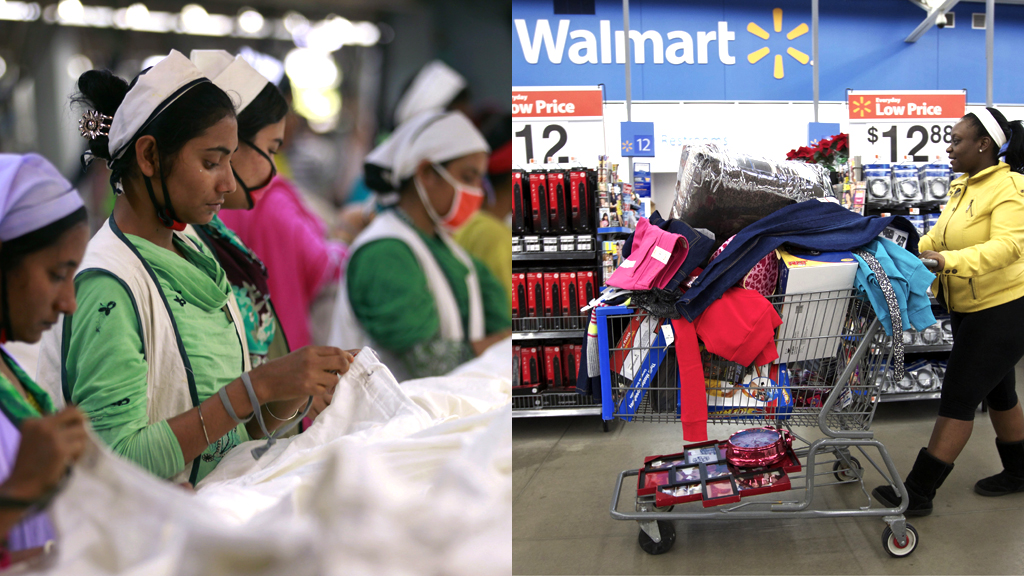Walmart opts out of Bangladesh factory safety pledge
Walmart will not join a group of European retailers in a pledge for higher safety standards and puts forward its own safety plan. But Channel 4 News hears Walmart is merely “accepting the status quo”.

Following the devastating collapse of a nine-storey factory that killed 1,120 garment workers in April, unions and labour groups have called on retailers to sign up to a health and safety accord.
But with hours to go before the midnight deadline on 15 May, Walmart announced its own separate safety inspections plan.
Rather than signing up to the legally-binding pact, the world’s biggest retail group said it will carry out its own inspections at its 279 factories within six months – something the giant US retailer said would yield faster results.
That’s what we’ve seen as the model up until now, and that model that has led to industrial homicide. IndustriALL Global Union
But IndustriALL Global Union General Secretary Jyrki Raina told Channel 4 News: “It’s a very clear message to say that they accept the status quo: continuing to have auditors set-up and controlled by the companies themselves.
“That’s what we’ve seen as the model up until now, and that model that has led to industrial homicide.”
When companies audit themselves, they fail to find what needs to be changed, he added.
The Rana Plaza building which killed over 1,000 when it collapsed on 24 April was inspected and met the Business Social Compliance Initiative code of conduct days before the collapse.
Read more from Business Correspondent Siobhan Kennedy: Will others follow Primark’s lead?
Primark, Tesco, H&M and Zara were among the British retailers to join many European partners in pledging their commitment to the accord drafted by IndustriALL and UNI Global Union.
The accord, which 24 retailers have committed to, is legally binding and forces companies to adhere to specific fire and building safety standards, to pay for upgrades and to sign up to independent inspections. It has been welcomed by the International Labour Organisation.
Walmart: ‘unnecessary’ details in accord
However US retailers have been more reluctant to sign up.
Gap said it would not sign the accord because of concerns over how disputes are resolved – in other words, the legally binding nature of the pledge. The company said that an accord is “within reach” if the issue over how disputes are resolved can be modified, adding “with this single change, this global historic agreement can move forward with a group of all retailers, not just those based in Europe.”
In a statement Gap, which currently has contracts with 78 Bangladeshi factories, said that it had invested over one million dollars in fire safety inspections and that, as a result of on-site inspections, some vendors are beginning to make improvements to their facilities.
Walmart said in a statement: “the company, like a number of other retailers, is not in a position to sign the IndustriALL accord at this time,”
“While we agree with much of the proposal, the IndustriALL plan also introduces requirements, including governance and dispute resolution mechanisms, on supply chain matters that are appropriately left to retailers, suppliers and government, and are unnecessary to achieve fire and safety goals.”
Crucially, Walmart’s own plan is not legally binding.
The company said it would post results of its own inspection on 1 June, saying: “Transparency is vital to make progress in improving factory conditions.”